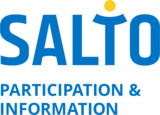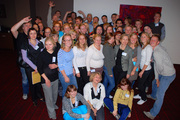Integrated youth policy in the Baltic sea region
Description
"Integrated" means that decisions made in all fields of politics should take the impact on youth as a central factor of future society into consideration. Youth is the future and it is a very important factor of today.
"Integrated" means including the work of organizations, the experience of individuals and the variety of methods and strategies being used in youth work.
- "Integrated Youth Policy" establishes planning, support and evaluation as three integrated pillars of qualified youth work and youth project work.
- "Integrated" reaches out to integratie young people with disadvantages and migrant backgrounds into society and youth work.
- "Integrated" brings young people from different ethnic origins together and is concerned about the situation of minorities. It strengthens bi- or trilingual education.
- "Integrated" is based on equal rights for young and old, female and male. Young people, as well as women, should be represented equally in all structures of society.
- "Integrated" is based on the idea of "Life-Long-Learning". Access, ability and willingness to learn and to improve knowledge are the central criteria for future success, both for an individual and society.
- "Integrated" Youth Policy combines life with the conditions to live it in a healthyway: HIV-prevention, drug-prevention, the prevention of alcohol and tobacco abuse are part of protection. Promotion of sport and out door activities is part of supporting a healthy life style.
- "Integrated" Youth Policy is based on social and ethic values and on democracy, equality, freedom and human rights.
-"Integrated" carries the responsibility for the protection of our natural and cultural heritage, both for the younger generation and for future generations.
The project has given young participants the possibility to actively use their voices at political meetings and seminars, Young people have influenced political decisions at a regional/local, national and EU level. The project has brought together and established a network of youth representatives, civil servants and youth workers from all 10 countries in the BSR.
1. Solidarity and cooperation - There have been seminars and meetings to ensure that young people understand other nations and sympathize with other groups of young people in societies with regard to their lifestyles, cultures and religions (tolerance and respect). We have implemented inter-cultural learning in training schedules for young people in formal education (schools) and informal education and for youth workers
2. Democracy and participation - Young people have taken part in democratic processes at a local, regional, national and European level. This is essential for the region to be part of a democratic society. The young people have promoted the idea of youth parliaments. Politicians have been informed about Youth initiatives. We have ensured the participation of young people in the Board and working groups of BSSSC. We have prepared young people for participation in political events in BSR (conferences, seminars, meetings)
3. We have had seminars about how to help young people to develop their full potential (cultural, social, physical, economic). The seminars have also focused on how to improve health care, drug prevention, the policy of non-smoking and non-drinking, trafficking, and the prevention of HIV and sexually transmitted diseases
The project period involved a lot of intensive work for the BSSSC's Work Group on Youth Policy (WGYP), with a lot of events and youth meetings offering several opportunities for young people to come together and exchange experiences and ideas. The activities resulted in closer cooperation between youngsters from different corners of the Baltic Sea regions and therefore helped to strengthen a network with joint efforts in organising seminars and conferences. Trafficking, climate change, youth culture, youth participation, Baltic identity and sustainable lifestyle were the main discussion topics.
At the BSSSC Annual conference in Turku, September 2007, two representatives from the youth team got full member status on the BSSSC Board. They now serve as an important link between politicians and youth; their voices draw the attention of the entire Board to youth policy
Objectives
Solidarity and cooperation - Young people's understanding of other nations and sympathizing with other groups of young people in societies with regard to their lifestyles, cultures and religions (tolerance and respect). 2. Democracy and participation - Young people actively take part in democratic processes at a local, regional, national and European level. It is essential for the region to be part of a democratic society. To promote the idea of youth parliaments. Politicians get to know Youth initiatives. To ensure the participation of young people in the BSSSC Board and working groups. 3. Mobility - Young people are mobile and can easily travel for jobs, study and tourism purposes. 4. Full growth for young people- to help them to utilise and develop their full potential (cultural, social, physical, economical).
Outcomes
The project has been successful and many young people from different countries around the Baltic sea have taken part in the discussions. The activities resulted in closer cooperation between youngsters from different corners of the Baltic Sea Region.
Partnership
Oppland County Youth Council, Norway
Baltic Sea States Subregional Co-operation (BSSSC)
Secretariat for Youth Affairs of Western Pomerania, Poland
The Youth Council of Western Pomerania/Rada, Poland
Cesis region, Latvia
Kaliingrad region (
Zealand County, Denmark
Tallin City Government, Estonia
Regional Youth Council Schleswig-Holstein, Germany
Budget
42 509,95€
Contact
Greta Juul
greta.juul@oppland.org

